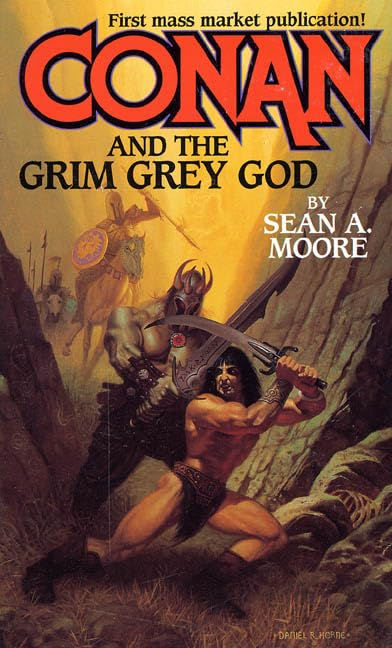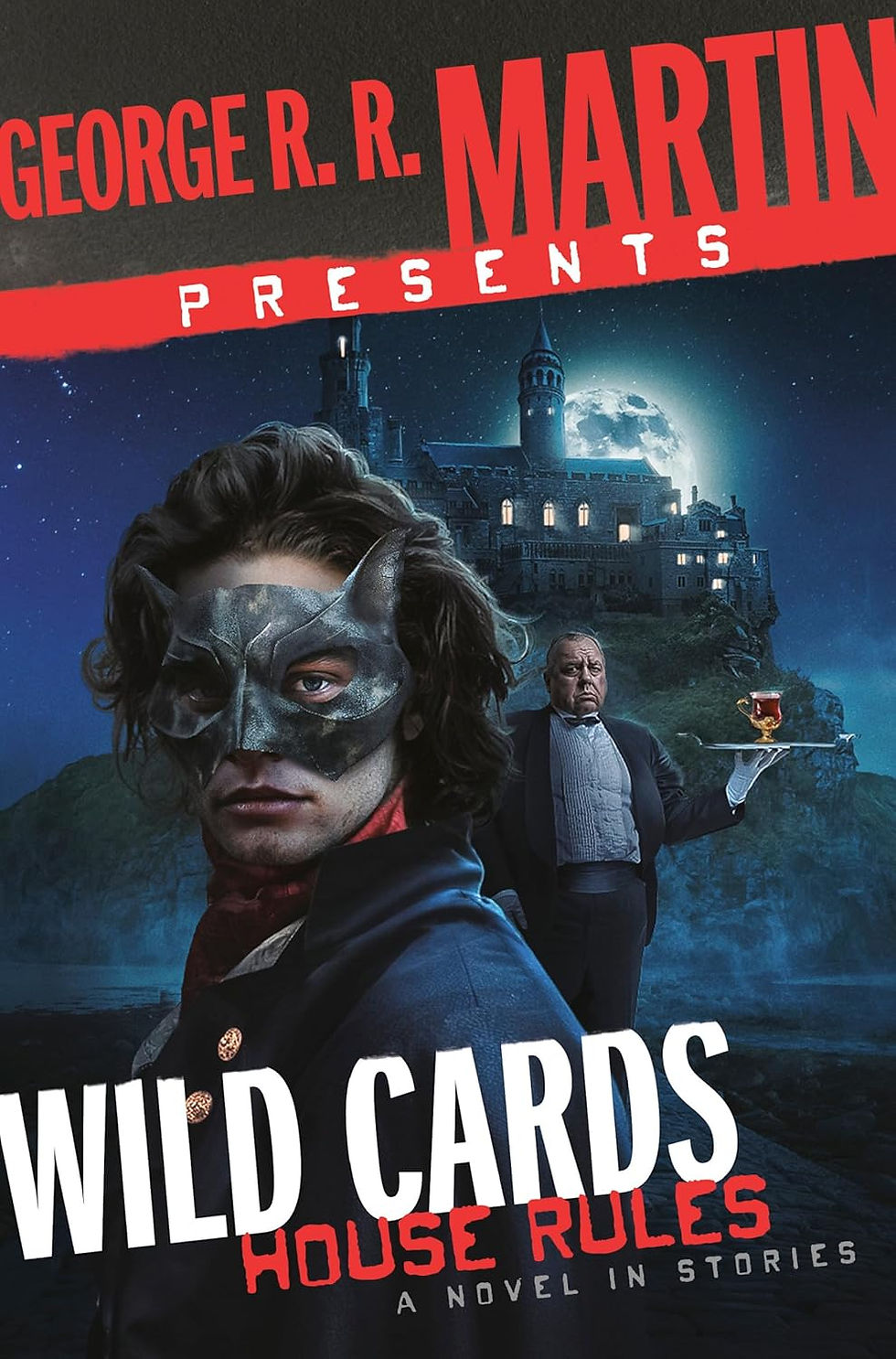Time and distance make a seminal sci-fi novel hokey.
- Greg O'Driscoll
- Nov 6, 2023
- 4 min read
THE CORNELIUS CHRONICLES
by Michael Moorcock

Four complete novels in one volume: The Final Programme, A Cure for Cancer, The English Assassin, and The Condition of Muzak. I remember having a blissful (and very necessary) three days off in a row, during which I lazed about and finished this off. Years after first reading them, I'm still not quite sure what to make of the whole thing. On the surface, the books are a rambling, confused narrative that follows various incarnations of one Jerry Cornelius, a wealthy, amoral, and ultra-hip genius/assassin. He's the post-60s pop icon version of Doc Savage. A former politician and member of the clergy, a published author and physicist, a directionless assassin and a failed messiah, Jerry shifts from one role to another with chameleon-like adaptability.
Elric Redux
The Final Programme, first book in the quadrology, is essentially Moorcock's better-known Elric of Melnibone by another name. Aside from happening in a bleak, alternate 1970s (or is it 60s? Linear time is a very nebulous thing in these books) some passages and situations are so alike as to make me think Moorcock saved himself a lot of time writing this one. The first of the four books is the most straightforward and the least challenging. Maybe Moorcock was illustrating the interchangibility of both genres and their offerings. The books get more offbeat, and more hard to follow, the further down the rabbit hole you go. A part of me really wants to like this stuff, the other part of me thinks it's an overblown jumble of half-formed ideas that probably didn't deserve the Nebula Award bestowed upon it.
Of course, one has to keep in mind that at the time these books first hit the shelves they probably were something special. The late 60s, early 70s was a rough time for science fiction, out of its infancy, but not yet into its adulthood or even later, its midlife crisis. No matter what they were experimenting with here and there, the big boys like Heinlein and Asimov still dominated the genre with largely traditional slide-rule socialist fare and free love sex-romps in between jaunts through space.
Shocking or schlocky?
Like a teenager trying to step out of their parents' shadow, newer science fiction had to shock, disturb and confuse. It had to be non-linear and bizarre, blurring ever further the lines between hero and villain, left and right, hope and despair, and ultimately the lines between various sexualities. Not that there is much in these books that would shock modern audiences. Promiscuity, incest, homosexuality, copious drug use, apathy, anarchy, and a list of other "offenses" permeate the Cornelius Chronicles, but on reading it I get the impression these things are there in only the broadest terms possible.
Even in his quest for his one true love Cornelius is not really a hero or antihero, just stuck some uncomfortable spot in between. Also, when divorced from the fantasy genre where this sort of thing is more common, and usually reserved for the villains, incest (one of the squickier cornerstones of the story) is present here. Is it to shock readers or just to taint any possibility the hero's being pure in any way? It didn't bother me. For whatever reason incest has always popped up here and there in sci-fi and fantasy well before George RR Martin began normalizing it. I was reading about the tangled family trees of Greek gods and goddesses well before I had ever heard of Michael Moorcock. I can happily read stories about anti-heroes and unreliable narrators.
What bothered me is that at the core of the tale is selfishness. I can't articulate it much better than that. I haven't seen as callow and apathetic a protagonist as Jerry Cornelius, since Stephen J. Donaldson's Thomas Covenant. Covenant appeared on the literary scene after Cornelius's debut, so the comparison can be chalked up to the order in which I read the two characters' adventures. Covenant was bombastically grim. Cornelius was irritatingly glib.
Transparently Transgressive
When Cornelius and other characters display the occasional homosexual tendency or transvestism (is that a word?) they don't really read as gay. Instead, they seem to behave in a sexually ambiguous manner just to shock stodgy readers, not because it actually furthers their characterization or even makes any sense within the context of the character's history/life/timeline (all of which get incredibly tangled along the way, what with the time travel and dimension hopping going on). My guess is Moorcock was going for a warped funhouse mirror reflection of modern urban life and pop culture in general, but it comes across like the flashing lights of Las Vegas, promising lurid thrills and seedy nightlife to lure in the rubes.
Which isn't to say these are bad books. They just come across, to this reader, as too artsy and self-important to be obligated to make sense. Making sense is not always a prerequisite for good prose, but the lack thereof doesn't connote timeless literature either. None of which undercuts Michael Moorcok's level of craft. If this is gobbledygook, it is exceptionally well written gobbledygook. Ultimately, the books are about entropy, the slow heat death of the universe, the gears of the cosmic clock skipping and grinding as it's action winds down. Cornelius's jounrey is a tale of a man's self-destructive urge toward entropy and the instinct to fight against it.
The Final Verdict
Suffice it to say, after enjoying Elric of Melnibone, Prince Corum, Hawkmoon, and a few others, Jerry Corneilius missed the mark for me. That does not mean I'll skip the next two volumes of his tale, which are currently sitting in a box in the other room, just that I'll approach them with a fraction less enthusiasm than I did the second and admittedly less challenging Corum trilogy after reading the first one.



One of your better reviews. It's a shame Moorcock doing his own Doc Savage isn't as cool as it sounds on paper.